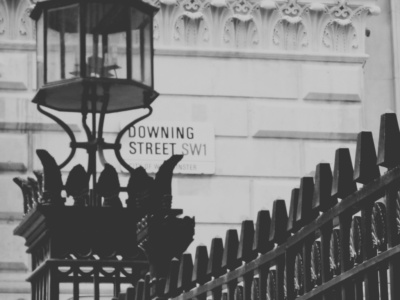The election is out of the way, and with a result that most people in the property sector will have welcomed. The question as always for a government with a big majority is what it does with it. Boris Johnson’s Tories have big ideas; the question is whether they can deliver on them.
In the meantime, crystal balls have been dusted off, to provide some insight into what is in store for next year and beyond. One source of uncertainty has been removed, which does not mean that all the others have gone away. But be grateful for small mercies.
The first thing to say about 2020 predictions – if only we had 2020 vision – is that we first have to look through the downturn that was in progress, for familiar reasons, in the final months of the year. That’s because the data we get for the time being, including that found in the latest official house price index bulletin from the government, is essentially backward-looking.
It shows that in the 12 months to October, national house price inflation was just 0.7 per cent, the lowest seen since September 2012. There were annual price falls of 1.6 per cent in London and 1.1 per cent in the North East, though there were strong rises in Yorkshire and the Humber (3.2 per cent) and Wales (3.3 per cent).
Looking to the future
That was then, but what about the outlook now?
Knight Frank, the estate agent, has released a new forecast, not just for 2020, but for the next five years. As it says: “The clarity afforded by a Conservative majority in the general election should remove some uncertainty – as well as the threat of an economic recession – increasing the likelihood that the UK will leave the European Union on 31st January.
“In the short-term, this will pave the way for the release of some of the pent-up demand that has built-in recent years, though the extent to which this translates into transactions will depend on the size of the pricing expectation gap between buyers and sellers.”
That said, Knight Frank’s forecast for 2020 is of only a modest 2 per cent rise in prices nationally.
Prices in the London housing market will be shrinking slightly, before slowly moving back to growth, though most other parts of the country will see a 2 per cent rise themselves, according to the forecast. It is a picture of a market slowly returning to life and, indeed, expected to gain in strength.
The forecast for the 2020-24 period pencils in a 15 per cent cumulative price rise, led by the South East and the East of England, up 17 per cent, but with the North East lagging behind on cumulative growth of 11 per cent. Other regions will see a 13-14 per cent rise in prices over the five-year period, according to Knight Frank.
A consensus emerges for 2020
The Royal Institution of Chartered Surveyors (RICS) also claims that prices will rise by two per cent nationwide in 2020. In its new forecast, it is, however, downbeat on transactions, which it sees remaining flat.
The rental market, however, should receive a boost from what RICS describes as the supply-demand imbalance. It sees rents rising by 2.5 per cent nationally, with greater strength seen in London, up three per cent, precisely because of supply shortages.
According to RICS: “As the sector continues to struggle with a lack of supply, the RICS survey data suggests rents will rise by 2.5 per cent. In fact, the number of new landlord instructions has been stuck in negative territory for 14 successive quarters, which is the longest run since 1999.”
So that gives us something to think about. The fog is clearing. It will be disappointing if there is not a response from the market.






















Comments